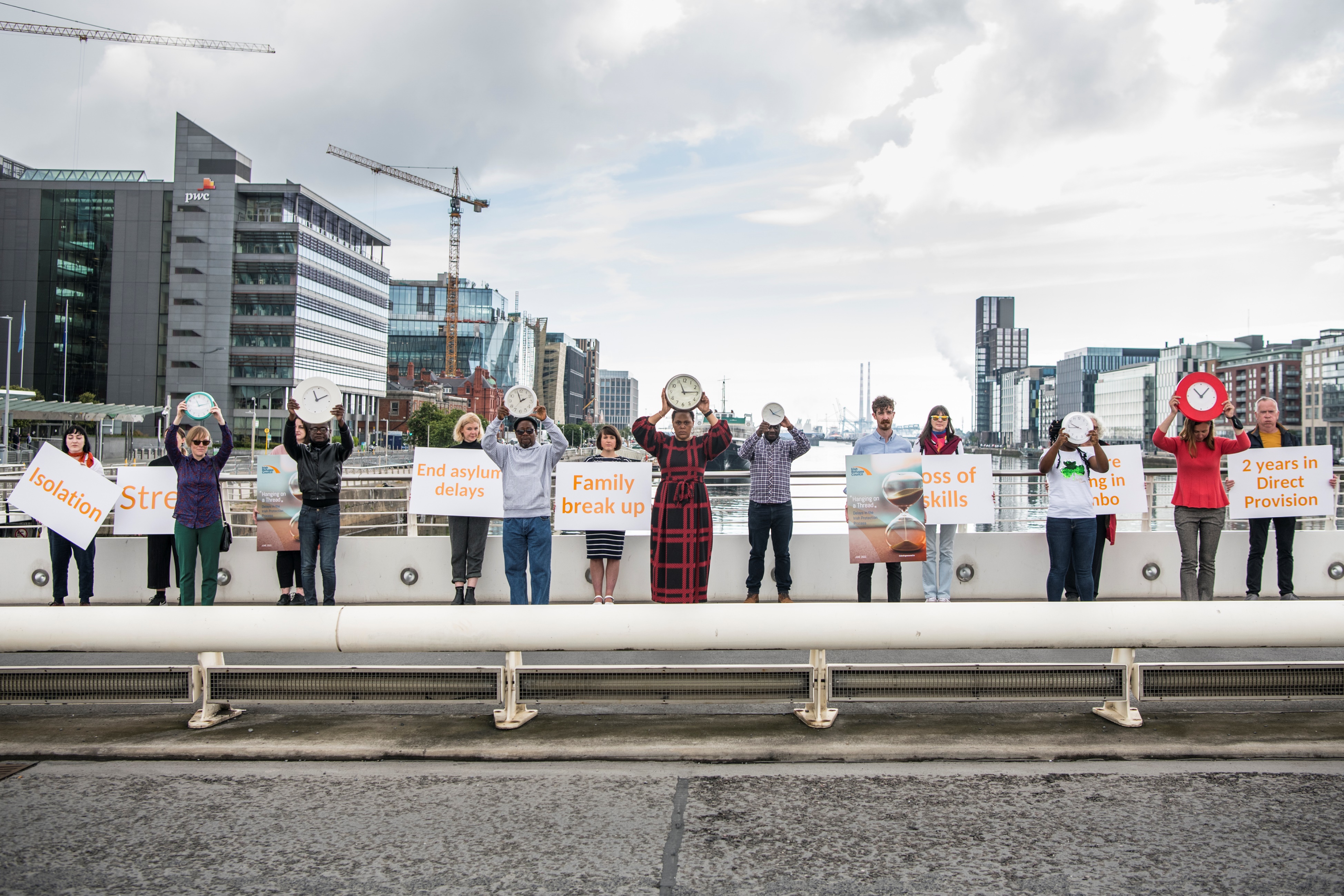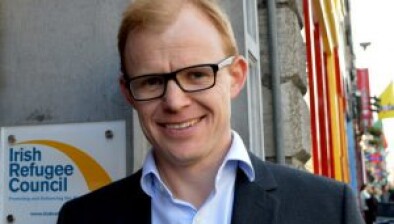Report shows ‘harmful’ delays in Irish Protection Process

Delays in Irish protection process are causing “direct harm to people”, according to the Irish Refugee Council.
A new report, “Hanging on a Thread” Delays in the Irish Protection Process, published by the Irish Refugee Council highlights the extent of delays in the Irish protection process and their impact on people waiting in the system. The report includes testimonials from people experiencing delays who express feelings of stress, depression, suicidal ideation and damage to family life.
Marking the launch of the report, staff members of the Irish Refugee Council and people in the system themselves met outside of the Dáil (at the Convention Centre). Politicians were invited to receive a copy of the report. Participants held up placards based on the statements of respondents to the survey and held clocks to demonstrate the time waited (pictured above).
Nick Henderson, CEO of the Irish Refugee Council, stated: “This report makes clear that delays cause direct harm to people. Feelings of stress, frustration, wasting of skills, damage to families and even suicidal ideation were all evident in the responses to the survey we conducted. Delays also undermine the integrity of the Irish protection process itself. All stakeholders should be deeply concerned.
“A perfect storm of a pre-pandemic backlog combined with Covid-19 induced closures has increased delays. Projected processing times, as of March 2021, were 1 year 10 months for non-prioritised applications and approximately 5,130 individuals were awaiting a first instance decision on their application.
“The system is in drastic need of a reset. In addition to the devasting testimony contained in the report, it offers recommendations and a roadmap out of this situation. Needless to say, this issue is also critical to the Government’s stated aim of ending Direct Provision. Creating a new accommodation system with 7,000 people in it is much harder than with 3,500 people.”
The full report can be found here.










